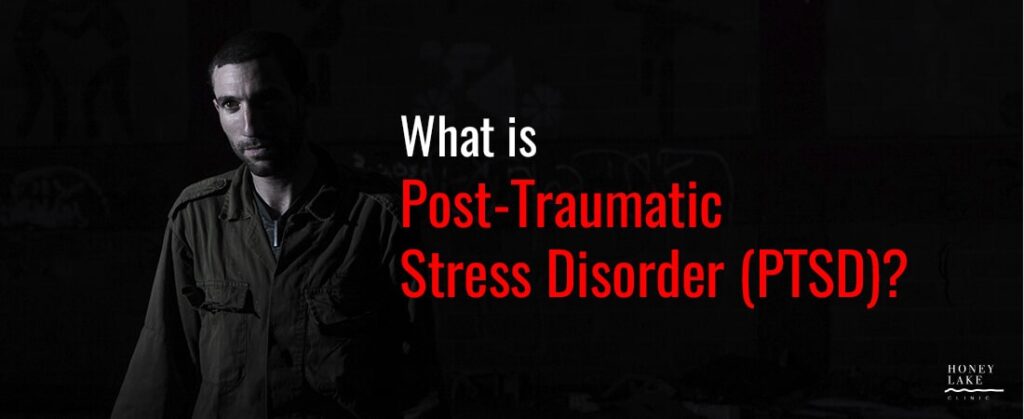What is Post-Traumatic Stress Disorder (PTSD)?
Post-Traumatic Stress Disorder, or PTSD, is a mental health condition which sometimes develops after an individual experiences a traumatic event. It is often associated with violent or dangerous events such as physical or sexual abuse, combat, natural disasters and horrific accidents. People can develop PTSD after less personally violent yet still traumatic situations, like a loved one suffering harm or dying.
Is it PTSD?
The most well-known signs of PTSD are flashbacks and nightmares. These and other symptoms tend to surface when a person hasn’t adequately processed the traumatic event they experienced. The trauma keeps coming back to mind, causing more distress, and can feel as if it is happening all over again, amplifying anxieties and fears, impacting thought, mood and life.
Symptoms of PTSD are grouped into four clusters. Are you or someone you love experiencing these?
Re-experiencing symptoms:
- Flashbacks, hearing, seeing, or physically feeling events as if it is occurring again
- Nightmares, or flashbacks while asleep
- Frightening thoughts or images as a result of the event
- Emotions similar to those felt around or during the event
Avoidance symptoms
- Purposely avoiding places, events, or things that remind the person of the trauma
- Avoiding thoughts or feelings connected with the trauma
- Detachment from life
- Decreased motivation
- Relational distance or isolation
Arousal and reactivity symptoms
- Easily startled
- Tense feeling
- Insomnia
- Irritability
- Easily agitated, angered, frustrated
- Physically restless, edgy, pacing, tapping, hard to sit still
- Muscle tension, tremor, twitching
- Heartburn, diarrhea, stomach cramping
Cognitive and mood symptoms
- Memory issues
- Concentration or attention struggles
- Occasional confusion or feeling overwhelmed
- Negative self-defeating thoughts
- Distorted views about themselves, others, God, or various life activities
- Distorted feelings of guilt or self-blame
- Loss of interest in past hobbies or activities
- Lack of enjoyment
- Anxiety, depression, anger
Symptoms of PTSD usually begin shortly after the trauma but may sometimes take years to develop. They can be triggered by words, objects, feelings, people, or events reminiscent of the traumatic experience.
Do you suspect you or someone you love is suffering from PTSD? We understand what you’re going through. We can help. Speak with someone right now, confidentially, at ((888) 837-6577.
PTSD is complicated, with dangerous physical and psychological consequences if not treated properly. The very good news is that PTSD is treatable, and the prognosis is good for those who do seek help. Don’t wait. The earlier help is sought, the better the outcome.
You may be thinking, “I can’t erase the past, so what can I really do about this?”
While you cannot go back and undo events that have happened in the past, you can change the way you store them and how you react to and feel about them going forward. Modifying your thinking while developing skills to manage the memories and ripples of that traumatic event will help you heal.
At Honey Lake Clinic, our experienced staff, licensed therapists, psychologists, and psychiatric specialists understand that effective treatment for PTSD requires a multifaceted approach, involving healing of the mind, body, and spirit. We are here to offer hope and provide answers for you.



